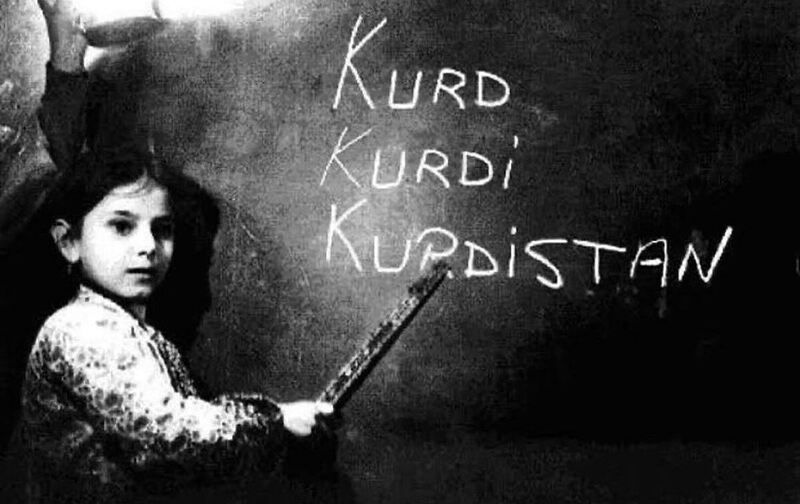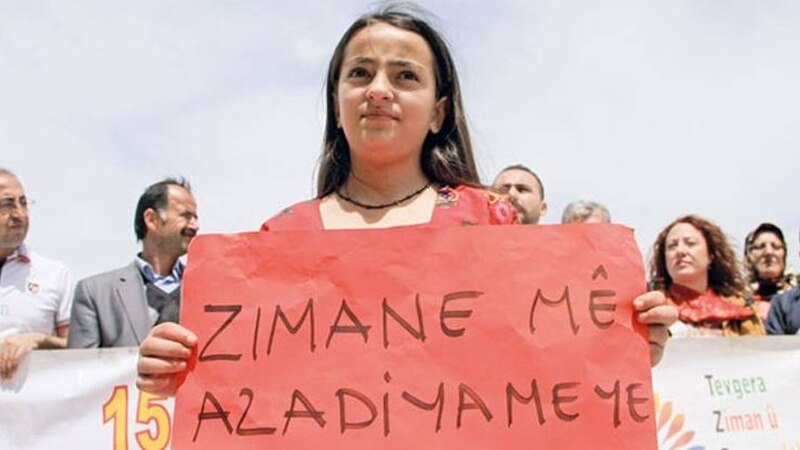Peshawa Kurdistani
One of the consequences of the French, British, and American Revolutions in the West was changing the feelings of empathy for the Empirical identity to nation-state and from religious sensitivity to national feelings and introducing the concept of "rights" which resulted in establishing secular, industrial, center oriented and liberal nation-state which turned into the standard and legal modern political establishment. The contrary to the empirical era which did not need monolingualism and the royal orders would be declared to people by multilingual officials; in the new governments, in order to listen to the people's voices and votes in managing the state's affairs it was necessary to leave the power to the state so that it could manage the country properly. In such circumstances, a channel for connection and understanding of the people and the state was essential thus, the need for a formal language or national language that would enable all the citizens to understand each other was introduced (Wright, 31: 2004).

In France, the right to speak in the language of the state which was dedicated to the elites only, now was imposed on all with the excuse of spreading democracy, and as a national duty all the people were forced to learn it, and finally the new republic was established based on "One Language, One Nation, One State". As a base and principle, this was imitated by all the other newly established states of the nineteenth century (Jage, 73: 2000). In addition to this, the Vienna Congress in 1825, identified the "minorities" as "National Groups" and granted them their religious freedom (Preece, 60: 1997). Later, the same base of "one language, one nation, one state", regardless of the background was advertised in Europe in the nineteenth century just to enable some dictatorship governments such as Reza Khan and Ataturk in Iran and Turkey to assimilate the languages and cultures of the countries they were ruling and to try to increase their power over them, this has been practiced to this very day unfortunately.
In World War I, the issue of the minority nations appeared as a potential possibility for the governments to face violence at an international level (Hanum, 1995:53). After establishing the United Nations, in order to solve the conflict that had occurred due to the minorities' dissatisfaction, achieve global peace and security, the fundamental rights that are mentioned in the following were accepted by the countries: the citizenship right; the right to live and freedom of speaking, the right to have freedom of beliefs and conducting their religious rituals in both general and particular forms, the right to be equal to the other nations of that country and avoiding discrimination because of gender, language and religion; the right to establish special organizations particular to their language and religion and the right to have public financial savings accounts to support education, religion or charity (Warns, 2001: 5).

According to the international treaties, preventing and punishing the act of genocide in the Human Rights International Declaration in 1948, cultural and lingual genocide includes "forced transference of children from one group to another" or "preventing them from using the language of the members of the group in which they meet every day or at school or in publications". The 107th paragraph of the international organization agreement in 1957, recognizes the original residents of a place including a tribe or clan right to speak and educate in their mother tongue. In addition to that, the legal article 5c1 of the UNESCO agreement is against excluding native language education which was published in 1960 and officially announces: "the minority members of every nation have the right to have educational activities such as managing schools and using their native language". On the other hand, article 30 of the UN Agreement for Children's Rights in 1990, it is mentioned that "in those countries in which minority nations, religions, and languages exist, the children of such minorities must be educated in their native culture and they should be enabled to express their religious beliefs. In addition to these, the UN declaration about the minorities' rights of language, religion, and nationality identity in 1992 forced the countries to support and protect these rights and mentions: that it is necessary to pave the way for these minorities to strengthen and expand their identities and provide them opportunities to educate and be educated in their mother language.
"Skutnabb Kangas" identifies each of the following as a form of genocide according to the genocide realization in the international agreements for preventing and punishing the genocide crime in 1948:
a. Killing the members of a group
b. Inflicting physical injuries or psychological damages on the members of a group
c. Planning for deteriorating all the members or a part of the members of an ethnic group and forcing them into such lifestyles
d. Forcing ways to prevent the members of a group from having children
e. Separating children of a group from their families and transferring them to another group in order to finish off all or a part of an ethnic or religious group.
As a result of researching various cases around the world, she thinks that forceful education of children in a language other than their mother tongue at school can make those children get separated from that group and join other linguistic groups. This is also one of the genocide definitions thus, being educated in another language that is different from one's native language in order to assimilate their language, and culture is another form of genocide (Skutnabb Kangas, 2010).
Wright, S. (2004) Language Policy and Language Planning. London: Palgrave.
Hannum, H. (1996) Autonomy, Sovereignty, and Self-Determination. Philadelphia: University of Pennsylvania Press.
Judge, A. (2000) ‘France: One state, one nation, one language?’ in S. Barbour and C. Carmichael (eds) Language and Nationalism in Europe. Oxford: Oxford University Press.
Preece, J. J. (1998) National Minorities and the European Nation-States System. Oxford: Clarendon.
Varennes, F. (2001) ‘The Linguistic Rights of Minorities in Europe’, in S. Trifunovska (ed) Minority Rights in Europe European Minorities and Languages. The Hague: Kluwer Law International.
Skutnabb-Kangas, Tove & Robert Dunbar (2010) Indigenous Children’s Education as Linguistic Genocide and a Crime Against Humanity? A Global View.
Sources:
Zahedi, Sadiq. "The Pathology of Forceful Education in Non-Native Language". "Haya Quarterly". Autumn 2014. No. 7 and 8. Page 147









